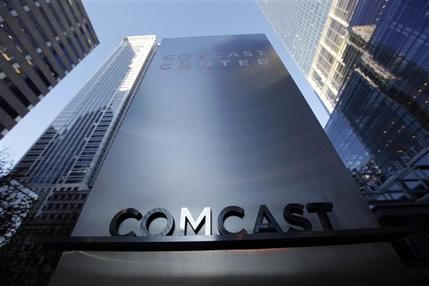Comcast/TWC Foes Outline Deal Issues

Opponents of the Comcast/Time Warner Cable merger were out in force Tuesday (Dec. 23) pushing their response to the companies' defense of the deal.
The deadline for reply comments to the FCC was Dec. 23. The commission stopped its informal clock on the merger Dec. 22 until Jan. 12, citing some documents that had not been produced by the companies reportedly due to some operator error, but at a press conference, Stop Mega Comcast, a coalition of deal opponents elaborated on their concerns in no uncertain terms.
Jeff Blum, SVP and deputy council of Dish, a member of the coalition, said the evidence shows the deal is clearly not in the public interest, with few benefits and many merger-specific harms.
Comcast has said it has no incentive to impair over-the-top providers because customers would simply leave for another service. He called Comcast the "Hotel California" of broadband because you can check in, but never really leave.
He also said that Comcast is telling the FCC that the relevant speed to gauge broadband competition is 4 mbps downstream, but is telling customers they need 50 mbps to get all the advantages of video.
Consumers Union, another member of the coalition, said that opponents of the deal have generated almost 600,000 comments opposing the deal (the comments were collected and generated by Common Cause, Consumers Union, DailyKos, Demand Progress, Free Press, Media Mobilizing Project, Presente, and The Blaze).
George Slover from Consumers Union said the deal will create harms that no amount of conditions can correct and that Consumer Reports was not "buying" the great customer service Comcast was promising.
Broadcasting & Cable Newsletter
The smarter way to stay on top of broadcasting and cable industry. Sign up below
"What's obvious to so many Americans should become obvious to the FCC as well: There isn't one single benefit to this merger," said Free Press president Craig Aaron in a statement. "A bigger Comcast would use its monopoly power to protect its own offerings at the expense of the online innovations sought by millions of Internet users nationwide."
The FCC is not expected to make a decision on the deal until the second quarter given the current court fight over third-party access to some of the programming contract documents in the deal vetting. The FCC wants hundreds of third parties, including outside council to competitors and public interest groups, to see those documents, while programmers, including broadcasters, say that is too wide a circulation of sensitive information, including work product.
Oral argument in that challenge is not scheduled until February, and the FCC has not signaled whether it is willing to sign off on the deal before the court reaches a decision.
Comcast and Time Warner Cable did not support the challenge by programmers, rightly concerned it could delay what they are hoping is the deal's approval.
John Bergmayer of Public Knowledge points out that the FCC is asking tons of questions, and pointed to the TWC documents that the FCC had not gotten due to what the FCC characterized as an error, and Bergmayer said were hidden. "We have spent a year putting evidence in the record, and I think we are about to see it pay off."
Blum said he did not think the planned divestitures of some systems to Charter/SpinCo to keep the cable sub count of the combined Comcast/TWC under 30% was insufficient since that dealt with video subs, not broadband subs.
Bergmayer pointed to the concern of small MVPD's over the power a Comcast/TWC would have to extract lower prices from programmers, after which the programmers would likely raise prices to smaller operators to make up the difference.
"We've built a compelling record in favor of the transaction," blogged Comcast's David Cohen EVP and chief diversity officer, who is the point person for the TWC deal in Washington. "That record starts with the strong public interest benefits of the transaction, supported by nearly 600 thoughtful and positive comments from a wide range of supporters - including more than 100 Chambers of Commerce and business organizations, a substantial and diverse group of businesses ranging from start-ups to national technology equipment makers, more than 30 programmers, numerous antitrust experts, nearly 200 diversity groups and community partners, leading advertisers, private citizens, and more than 100 state and local leaders and elected officials. "
To read more from Cohen, go here.
Contributing editor John Eggerton has been an editor and/or writer on media regulation, legislation and policy for over four decades, including covering the FCC, FTC, Congress, the major media trade associations, and the federal courts. In addition to Multichannel News and Broadcasting + Cable, his work has appeared in Radio World, TV Technology, TV Fax, This Week in Consumer Electronics, Variety and the Encyclopedia Britannica.

